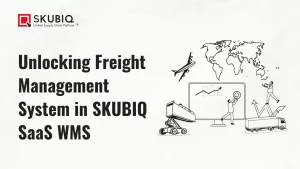The Indian economy has been experiencing remarkable growth in recent years, with the logistics industry playing a pivotal role in driving this progress. The rise of e-commerce has further stimulated this growth, resulting in an increased demand for efficient and effective warehousing solutions. As a consequence, the demand for Software-as-a-Service (SaaS) Warehouse Management Systems (WMS) in India is on the rise.
Reporting Analysis
According to a recent market report by Mordor Intelligence, the Indian SaaS WMS market is projected to grow at a compound annual growth rate (CAGR) of 15.2% from 2021 to 2026. The report cites the increasing demand for e-commerce and the need for efficient and cost-effective warehouse operations as the primary drivers of this growth. Another report by Research and Markets predicts that the Indian SaaS WMS market will grow at a CAGR of 18.4% from 2020 to 2025. The report highlights the increasing adoption of cloud-based WMS solutions as a key trend in the market. Cloud-based solutions offer several benefits over traditional on-premise solutions, including lower upfront costs, faster implementation, and the ability to access the software from anywhere.

E-Commerce Cost-Effectiveness
The growth of the Indian SaaS WMS market is not limited to just e-commerce. The manufacturing, healthcare, and retail sectors are also expected to contribute significantly to this growth. The need for increased efficiency and cost-effectiveness in warehouse operations is universal across industries, making WMS solutions a crucial investment for companies of all sizes.

One of the primary factors driving the growth of the Indian SaaS WMS market is the increasing demand for e-commerce. The Indian e-commerce market is growing at a rapid pace, driven by rising internet and smartphone penetration, a surge in digital payments, and the availability of affordable smartphones. According to a report by the India Brand Equity Foundation, the Indian e-commerce market is expected to reach USD 200 billion by 2026, growing at a CAGR of 16.45% from 2021 to 2026. This growth is expected to fuel the demand for efficient, cost-effective warehousing solutions.
E-Commerce Purchasing
Efficient warehouse management is crucial for e-commerce companies to succeed in India. The Indian e-commerce market is highly competitive, with players like Amazon, Flipkart, and Reliance JioMart vying for market share. These companies require warehouses that can handle high volumes of orders efficiently and cost-effectively, leading to a surge in demand for SaaS WMS solutions.

Cloud Solutions
Cloud-based WMS solutions have emerged as a key trend in the Indian WMS market, offering significant benefits over traditional on-premise solutions. Cloud-based solutions offer lower upfront costs, faster implementation, and the ability to access software from anywhere, making them ideal for companies of all sizes. Additionally, cloud-based solutions offer better scalability and flexibility, enabling companies to quickly adjust to changing business needs. The adoption of cloud-based WMS solutions in India is expected to increase in the coming years, driven by the benefits they offer.




